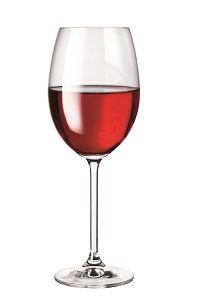Alcohol in excess can be detrimental to the heart muscle and cause irregular beating of the heart. It can also contribute to obesity, high triglyceride levels, hypertension, strokes and cancer. The alcohol content of drinks is measured in units. One UK unit contains eight grams of pure alcohol. It's the strength and size of a drink that determines how many units it has. It's not as simple as one drink, one unit. The Government recommends that both men and women should not regularly drink more than 14 units a week.
How to work out alcohol units
 Multiply the volume/amount of drink in millilitres by percentage ABV, then divide by 1000.
Multiply the volume/amount of drink in millilitres by percentage ABV, then divide by 1000.
For example with a 175ml glass of wine at 13% ABV
175 (amount) x 13 (% ABV) = 2,275
Divided by 1000 = 2.275 i.e. 2.3 units
Now take 1 pint of strong lager at 8% ABV
1 pint (568ml) x 8 = 4544
Divided by 1000 = 4.544 i.e. 4.5 units
The following are sensible drinking guidelines for everyone:
- Drink and think in units.
- Keep a drinking diary - it will help you to understand your own drinking pattern.
- Pace yourself - enjoy a drink slowly - you don't have to join in with every round.
- Try drinking low-alcohol and alcohol-free drinks.
- Not everyone drinks alcohol; it's okay to say no.
- Have at least two alcohol-free days each week.
- Be aware of the amount if you are drinking at home – these are not measured units.
Diabetic patients should be advised:
- To avoid drinking on an empty stomach as the alcohol will be absorbed faster
- To eat a snack containing carbohydrate before and after drinking
- Alcohol can exacerbate or prolong the hypoglycaemic effects of antidiabetic drugs, and can make the signs of a hypoglycaemia episode less clear.
